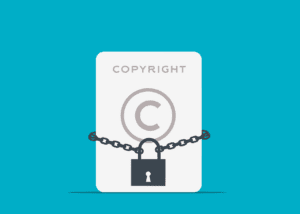 Some lawyers might be surprised to know there are many blockchain use cases for the legal industry. Blockchain is a distributed ledger technology, and it’s the underlying technology behind cryptocurrency. But it can be applied to everything from real estate, to law, and even healthcare.
Some lawyers might be surprised to know there are many blockchain use cases for the legal industry. Blockchain is a distributed ledger technology, and it’s the underlying technology behind cryptocurrency. But it can be applied to everything from real estate, to law, and even healthcare.
Blockchain is still pretty new and not widely adopted yet, but it has the potential to disrupt all these industries and help streamline their current processes. Blockchain use cases in the law sector can help lawyers automate time-consuming paperwork, lower costs, and ensure more privacy and security for legal contracts and other documentation.
How could the legal sector benefit from blockchain?
Increased transparency
Blockchain can help improve transparency in the legal industry because it makes files more accessible and verifiable. As the name suggests, distributed ledger technology distributes the information stored on it across thousands of computers around the world.
It records every transaction made on the chain, including contracts and other important information. Because so many people can verify this information, it helps keep legal proceedings more transparent.
Boosting efficiency and introducing automation
Efficiency is another aspect of the legal industry that blockchain can disrupt, particularly through smart contract technology. Lawyers can save time and money by automating administrative tasks that take up valuable time they could be spending on helping their clients and taking more cases.
The automation introduced by smart contracts is also helpful for creating legally-binding contracts and documents. Smart contracts ensure no one can ever get around the terms of the agreement; the contract won’t execute unless the terms are met.
Enhancing security and privacy
 Blockchain use cases for the legal industry also include matters related to security. Sensitive information and confidential documents can be stored securely on the blockchain without fear of them being stolen or tampered with.
Blockchain use cases for the legal industry also include matters related to security. Sensitive information and confidential documents can be stored securely on the blockchain without fear of them being stolen or tampered with.
Anything stored on the blockchain is irreversible and unchangeable. And the odds of a hack happening are low since the information isn’t stored on any single device. A hacker would need to hack into 51% of nodes at the same time if they wanted any hope of taking over the blockchain.
For additional security, there is always the option of creating a private blockchain. While still decentralized, it will restrict the number of people who can access the chain.
Creating new jobs in the legal industry
Another factor to consider is that as the blockchain industry continues to grow and blockchain finds more use cases in other businesses and industries, lawyers will be needed to serve this new market. Blockchain technology and the automation it introduces don’t mean the need for lawyers will disappear.
In fact, it introduces a new job market that will require lawyers with specialized knowledge of the technology and the rules and regulations currently being crafted around it. Because the industry is still so new, these regulations are in the process of being developed. Lawyers who take the time to learn about the industry now will be ahead of the game.
3 blockchain use cases for the legal industry
Streamlining legal agreements through smart contracts
 Smart contracts are one of the top blockchain use cases for the legal industry because nearly every business and industry needs contracts.
Smart contracts are one of the top blockchain use cases for the legal industry because nearly every business and industry needs contracts.
Smart contract technology creates more efficiency because it eliminates the need for trust. The computer automatically executes the contract when its terms are met, with no need for a middleman to enforce it or otherwise facilitate the outcome.
Also, there is no need to worry about anyone losing or destroying a physical contract because it lives permanently on the blockchain and can’t be erased. Smart contracts also save time and money because they reduce the potential for errors in the agreement and cut down on the time needed to process the documents manually – the computer will do all the processing automatically.
However, smart contracts won’t eliminate the need for lawyers entirely. They’ll still be needed to help draft the contracts or deal with unexpected situations. For example, a lawyer will be necessary in a scenario where one of the parties suddenly passes away and is unable to fulfill their end of the contract.
Creating a chain of custody for evidence
Another interesting example of blockchain use cases in the legal industry is recording the location and movement of evidence for a case.
Currently, evidence is kept in a centralized location and then checked out by the lawyers as needed for their case. By the time the evidence is used in court, it’s likely that multiple people have handled it. This introduces the risk of the evidence being lost, misplaced, or checked out by somebody and never returned. There is also the potential for confusion about who viewed the evidence and when they viewed it.
Blockchain can take care of this by creating a trustless, immutable “chain of custody.” For example, pieces of evidence can be represented on the blockchain through tokenization. The technology can easily keep track of the item’s history, who checked it out, and how long they logged it.
This eliminates the need for lawyers to look back through piles of documents to establish a chronology of who handled the evidence. It also helps protect the evidence before it arrives in court.
Filing for patents and intellectual property rights cases
 One of the most exciting blockchain use cases for the legal industry is intellectual property rights. In 2021, there were 650,654 patent applications filed in the U.S. Copyright infringement cases are another aspect of intellectual property rights.
One of the most exciting blockchain use cases for the legal industry is intellectual property rights. In 2021, there were 650,654 patent applications filed in the U.S. Copyright infringement cases are another aspect of intellectual property rights.
Blockchain could disrupt this sector of the legal industry by automating the patent application process. This would speed up the entire process because the outcome will be determined automatically by an algorithm instead of manually.
Right now, it takes nearly two years to get approval for a patent. But with blockchain, people filing for patents can avoid the large amounts of paperwork and long wait times.
Blockchain can also cut down on unnecessary patent lawsuits and copyright infringement cases. Another example of blockchain use cases in this sector is providing a clear record of which patents were made when, who created them first, and who owns the current rights to a piece of intellectual property.
Smart contracts can also play a role in simplifying the process of licensing intellectual property for others to use. Lawyers can help draft the license terms, and smart contracts will execute it automatically. The contract can also guarantee that the artist gets paid fairly for the use of their intellectual property.
How do lawyers feel about blockchain in the legal sector?
Of course, blockchain technology is still so new that it will be a while before it is widely used in the legal industry. But that hasn’t stopped many lawyers from expressing an interest in the technology.
In 2017, PwC Law Firms conducted a survey of the top 100 law firms in the U.S. and U.K. and found that 72% of firms were using or planning to use blockchain technology in both high-value and transactional legal services.
When it came to smart contract technology, 45% of firms were using or planning to use it for high-value legal services. 70% said they were using or planning to use it for transactional legal services.
The fact that these law firms were so interested in blockchain technology as far back as 2017 shows the potential for the technology to gain more traction in the legal industry. As the technology continues to develop, lawyers can discover more blockchain use cases for the legal industry in the future.
About the Author

Michael Hearne
About Decentral Publishing
Decentral Publishing is dedicated to producing content through our blog, eBooks, and docu-series to help our readers deepen their knowledge of cryptocurrency and related topics. Do you have a fresh perspective or any other topics worth discussing? Keep the conversation going with us online at: Facebook, Twitter, Instagram, and LinkedIn.


